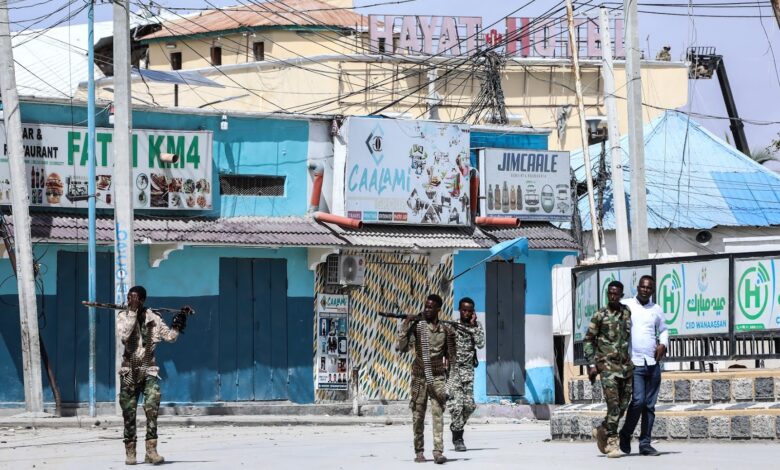At Least 21 Killed, Over 100 Injured In Deadly Al-Shabaab Attack
The Al-Qaeda-linked terror group fired sporadically and planted explosives in a recent 30-hour-long attack in Mogadishu, Somalia, killing many people trapped in a hotel.

The Somalia Ministry of Health has confirmed that at least 21 people were killed and 117 others were injured in a 30-hour siege of a hotel in Mogadishu by the Al-Qaeda-linked terror group, Al-Shabaab.
The statement came as the Somali military announced that they had cleared the hotel of terrorist-planted explosives and driven them out in order to rescue victims trapped inside.
“We have confirmed so far 21 dead people and 117 others injured,” Ali Haji, the minister for health, told national broadcaster SNTV.
“It is possible there were corpses that were not taken to hospitals but buried by relatives. The death toll and the casualties are based on the figure taken to hospitals,” the minister added.
According to AFP, security forces pounded the hotel late Saturday with heavy weapons to kill the terrorists who had sought refuge there for the second night in a row.
A military commander told the AFP that all of the terrorists who took part in the attack were killed and the soldiers have cleared the hotel of explosives planted by the terrorists.
On Friday evening, the terrorists stormed the Hayat Hotel in Mogadishu and began firing and exploding bombs before announcing that they had seized control of the hotel for several hours in their radio station.
During the engagements between Somali forces and the fighters, the hotel building was heavily damaged, causing some parts of it to collapse.
Authorities said “106 people, including children and women” were rescued as police commissioner Abdi Hassan Mohamed Hijar told reporters on Sunday, announcing the end of the operation.
“The majority of the casualties occurred in the early hours of the attack, and security forces spent time rescuing people individually and room by room,” Hijar added.
The attack was described as the deadliest in Mogadishu since new President Hassan Sheikh Mahmoud took office in May and increased offensives against the terror group that is operating largely in the villages.
For years, Somalia has waged a war against al-Shabaab extremists. The armed group, which was founded in early 2004, is ideologically linked to Al-Qaeda.
Al-Shabaab was driven out of Mogadishu by African Union forces in 2011, but it still controls a large portion of the countryside and is capable of carrying out deadly attacks especially at the borders.
In June, the group’s fighters carried out several attacks on villages near and across the border with Ethiopia, killing more than a dozen people, including Ethiopian police officers and civilians, according to reports.
Support Our Journalism
There are millions of ordinary people affected by conflict in Africa whose stories are missing in the mainstream media. HumAngle is determined to tell those challenging and under-reported stories, hoping that the people impacted by these conflicts will find the safety and security they deserve.
To ensure that we continue to provide public service coverage, we have a small favour to ask you. We want you to be part of our journalistic endeavour by contributing a token to us.
Your donation will further promote a robust, free, and independent media.
Donate HereStay Closer To The Stories That Matter




